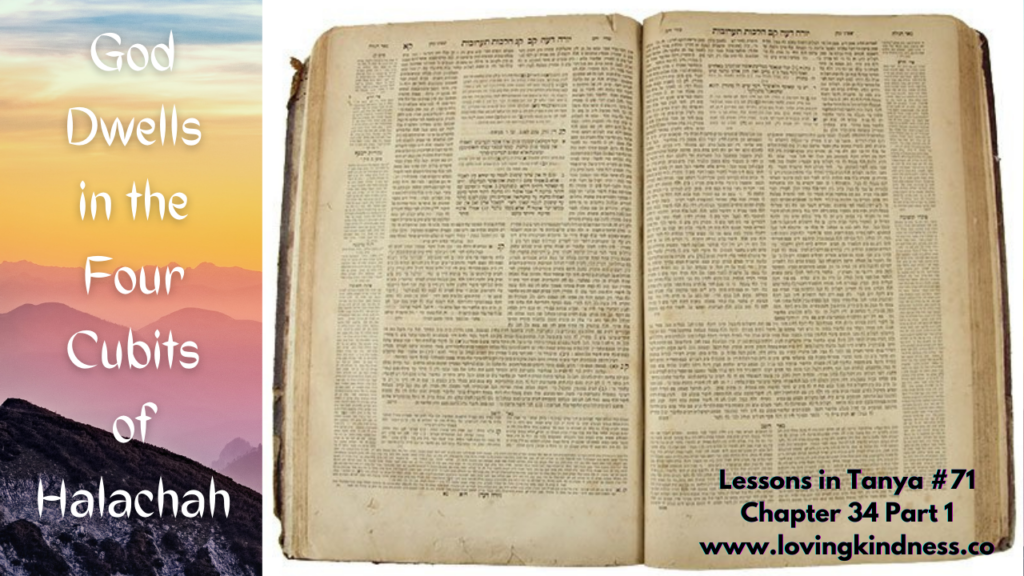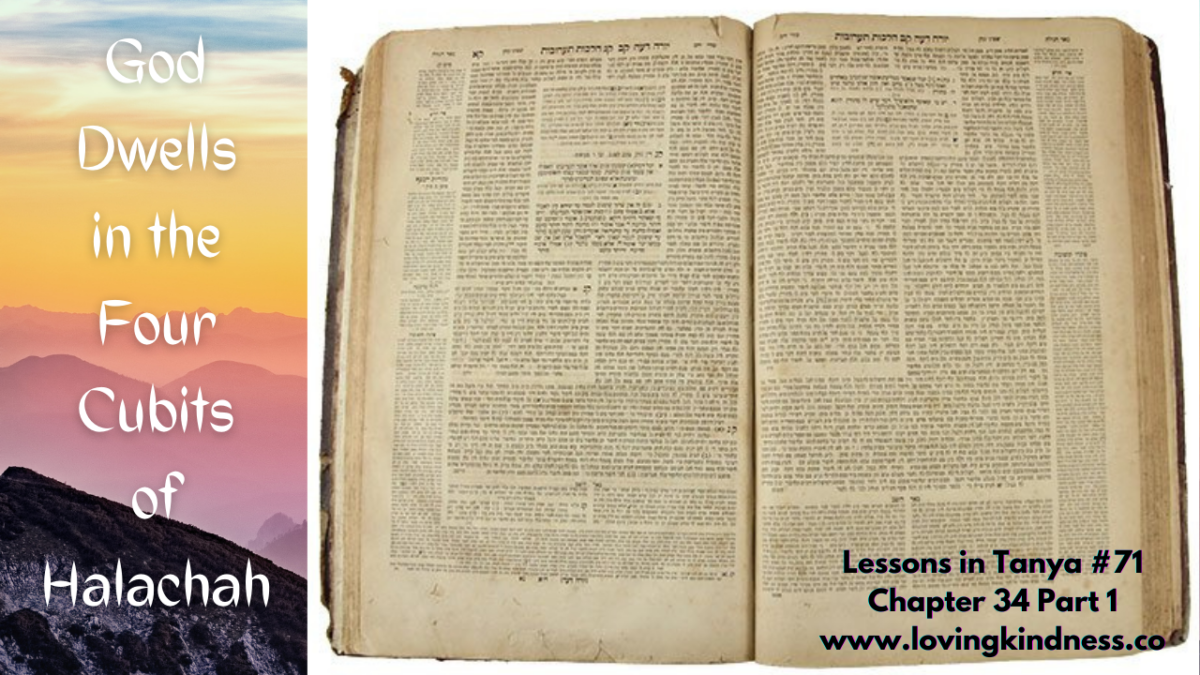
Chapter 34 of Tanya continues the theme of happiness that we discussed in Chapter 33. However, it deals with it from a slightly different angle.
The Alter Rebbe tells us that the forefathers acted in a way as chariots for the Rider. Everything they did, spoke or thought was in the realm of fulfilling the Divine will. They were absolutely nullified to God in everything.
So too, the entire Jewish nation was nullified to God – once – when they all stood at Mount Sinai. Here we learn that Moshe Rabbeinu (Moses our Teacher) was completed nullified to God to the degree that the Divine Presence even spoke through the throat of Moshe. The Jewish people – at the time of the giving of the Torah was on such a similar level – but they could not handle it. It was then that the asked Moshe to relate to them what God was going to say.
This of course is the goal that everyone should be moving towards. However, not everyone can be a Moshe Rabbeinu. There are myriads of levels of closeness to the Divine and of each of us should strive to become as much of a Divine chariot to God as we can.
After the Torah was given – and because it was impossible for the average person to reach the closeness to God as Moses had experienced in his life, God commanded Moshe to build for Him a Tabernacle – a Mishkan – in which He would dwell. There, He would reveal Himself to that same degree as He had at Mount Sinai. Those who wished to experience that awesome closeness could bring themselves to that place of holiness and experience that special unique feeling there. Whereas outside of that area, life would continue as usual with a lesser degree of revelation of Godliness.
However, the Mishkan and the Temples were destroyed and God’s Presence left these places. The Alter Rebbe tells us that the Presence went to the four cubits of Halachah. When a Jew engages in learning the Halachah – and in practising it, he then attaches himself to that same closeness as it was then when the Mishkan and later the Temples stood.
This is our way of connecting with God at that very close level — by simply engaging in the study of Torah and the Halachah. This is where God reveals Himself – now that there is no Mishkan or Temple.
Every person should feel privileged to be able to learn Torah both in the morning and the night. If God gives him more time to engage in Torah, he should spend that time in learning.
Even for one who is not fortunate enough to be able to learn at length should value his own work that he does. By taking a fifth of his earnings and giving it to charity (Tzedakah), he likewise invests himself and his energy in the service of God by fulfilling the Mitzvah of Tzedakah – and through this, he uplifts all the other four fifths of his income – which are giving to serve God (just like he would attach himself to God when he studies Torah as above.)
Through doing this, a person should be filled with great happiness.


